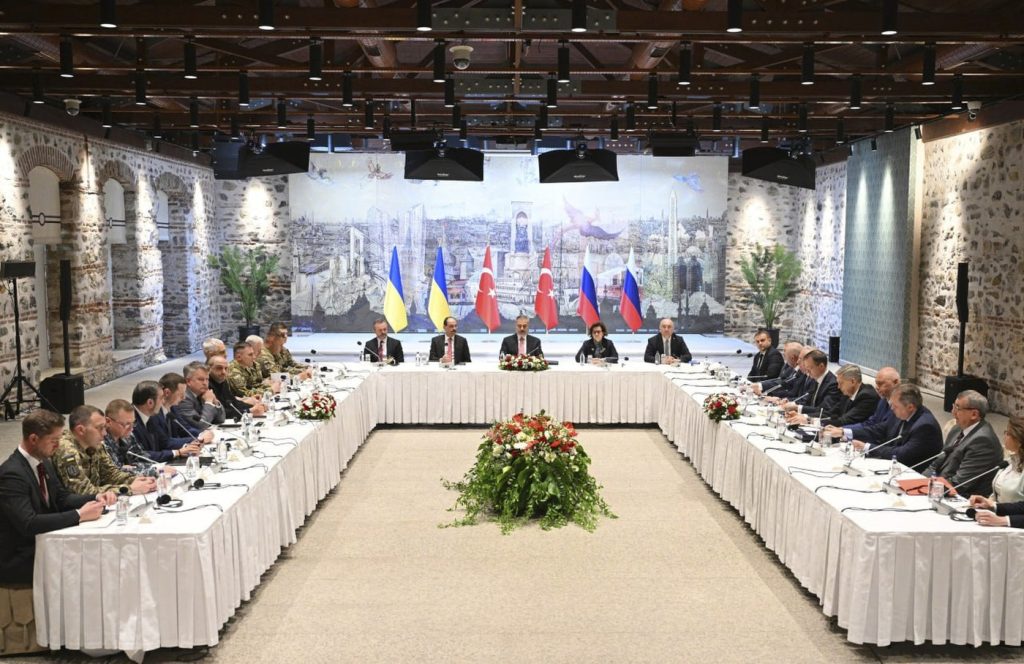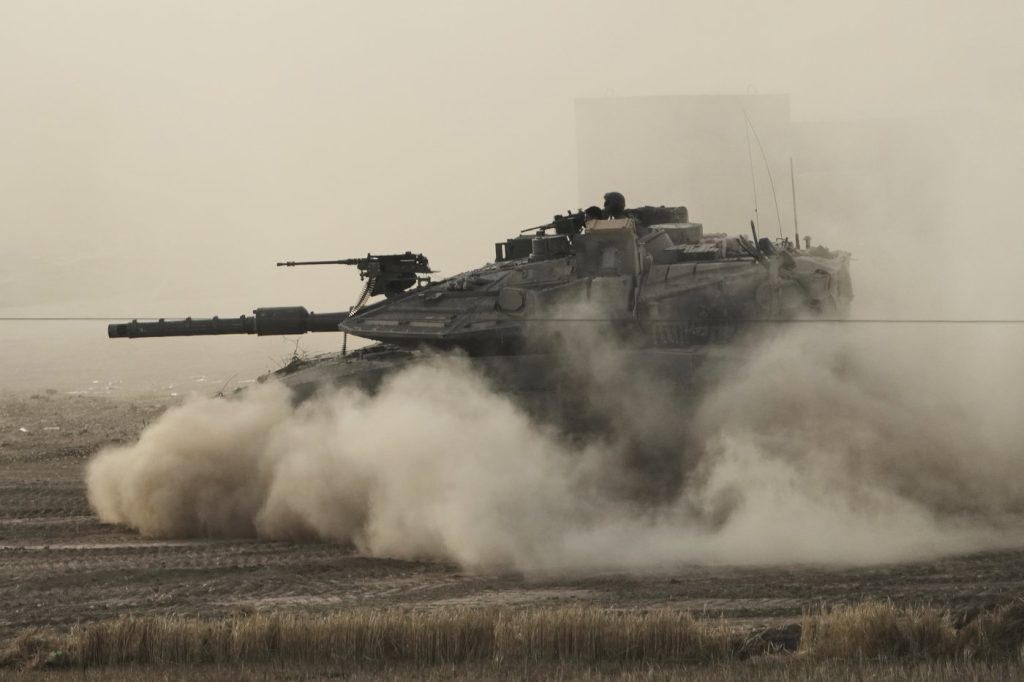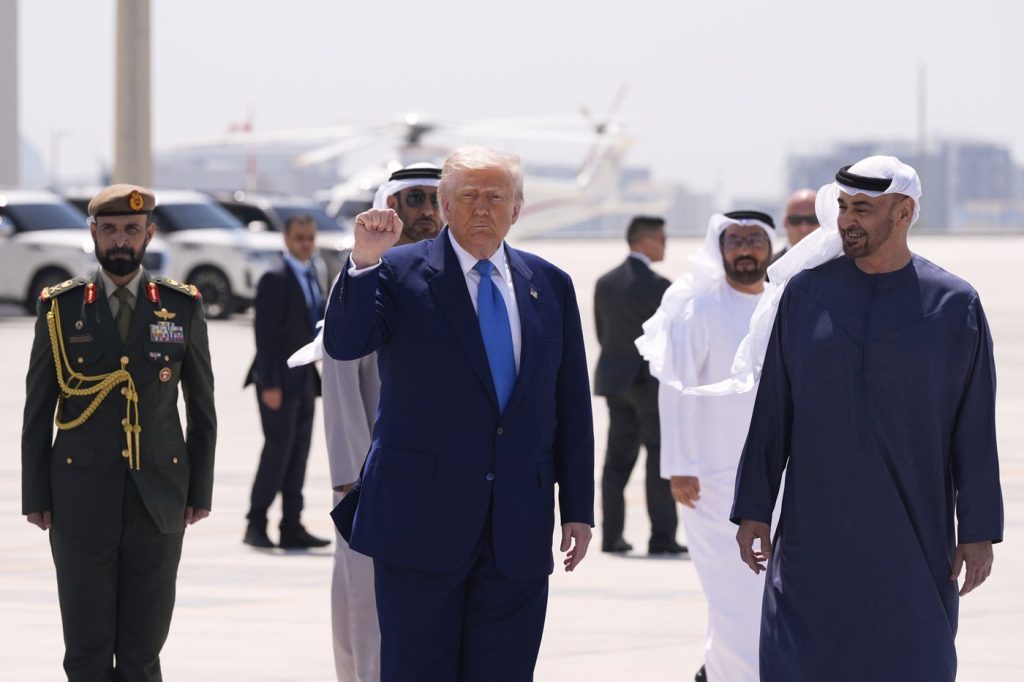ISTANBUL (AP) — The first direct peace talks between Russia and Ukraine since the early weeks of Moscow's 2022 invasion concluded after less than two hours on Friday. Although both sides reached an agreement for a significant prisoner swap, they remained deeply divided on essential conditions for halting the ongoing conflict.
One crucial demand from Ukraine, supported by its Western allies, is a temporary ceasefire as an initial step toward achieving a comprehensive peace settlement. However, the Kremlin has been resistant to such a truce, making a peaceful resolution difficult to attain.
Ukrainian Foreign Ministry spokesman Heorhii Tykhii expressed disappointment after the talks, stating, “We haven’t received a Russian ‘yes’ on this basic point. If you want to have serious negotiations, you have to have guns silenced.” In contrast, Russian delegation head Vladimir Medinsky expressed satisfaction with the outcome, indicating that Moscow is open to further discussions.
Ukrainian President Volodymyr Zelenskyy reported that he spoke about the talks with U.S. President Donald Trump, as well as the leaders of France, Germany, the U.K., and Poland. In a social media post stemming from a European leadership meeting in Albania, he urged “tough sanctions” against Moscow if it continues to reject a “full and unconditional ceasefire and an end to killings.”
During the talks held in Istanbul, both Kyiv and Moscow agreed to exchange 1,000 prisoners of war, which would mark their largest such swap to date. The discussions also included the possibility of a ceasefire and a meeting between the two countries' heads of state, according to Ukrainian Defense Minister Rustem Umerov.
Medinsky stated that both sides will provide detailed ceasefire proposals, with Ukraine requesting a meeting between their leaders, a request that Russia acknowledged but did not fully commit to.
Serhii Kyslytsia, Ukraine’s first deputy foreign minister, stressed the importance of maintaining pressure on Russia, saying, “We should not really relax at this point.”
However, a senior Ukrainian official noted that Russia introduced new, “unacceptable demands” during the talks, which included withdrawing Ukrainian forces from extensive regions of territory—conditions that had not been previously discussed.
The Ukrainian side reiterated its focus on achieving real progress, emphasizing an immediate ceasefire and a route toward substantive diplomatic dialogue. Tykhii confirmed that the Russian delegation expressed several unacceptable proposals, but he maintained that Ukraine would adhere to its stance.
Both delegations were seated across from each other at a U-shaped table in Istanbul's Dolmabahce Palace yet remained far apart on their conditions for ceasing hostilities. Trump, who has been advocating for a conclusion to the conflict, suggested he would meet with Putin “as soon as we can set it up.”
Turkish Foreign Minister Hakan Fidan opened the discussions by urging participants to seize the opportunity to strive for a ceasefire promptly. He referred to the POW swap as a “confidence-building measure” and mentioned that the parties had agreed in principle to reconvene.
Zelenskyy’s presence in Tirana, Albania, was also significant as he engaged with leaders of 47 European countries on security and defense issues amid the war. He met with French President Emmanuel Macron, German Chancellor Friedrich Merz, U.K. Prime Minister Keir Starmer, and Polish Prime Minister Donald Tusk.
Zelenskyy stressed the necessity of maintaining pressure on Russia until the country is prepared to conclude the conflict, emphasizing that the situation “is clearly unacceptable.” While no specific actions were confirmed, some European leaders pressed for new sanctions, with the European Union likely to impose fresh measures soon.
Despite ongoing diplomatic efforts, the talks revealed that both Russia and Ukraine continued their respective military preparations. Analysts indicated that Russia is gearing up for a renewed military offensive in Ukraine, with recent reports of drone attacks leading to casualties.
As the situation develops, it remains unclear whether diplomatic efforts can bridge the significant gaps between the two sides. Ukrainian and Western leaders continue to call for coordinated responses to Russian actions and pressure for negotiations.












